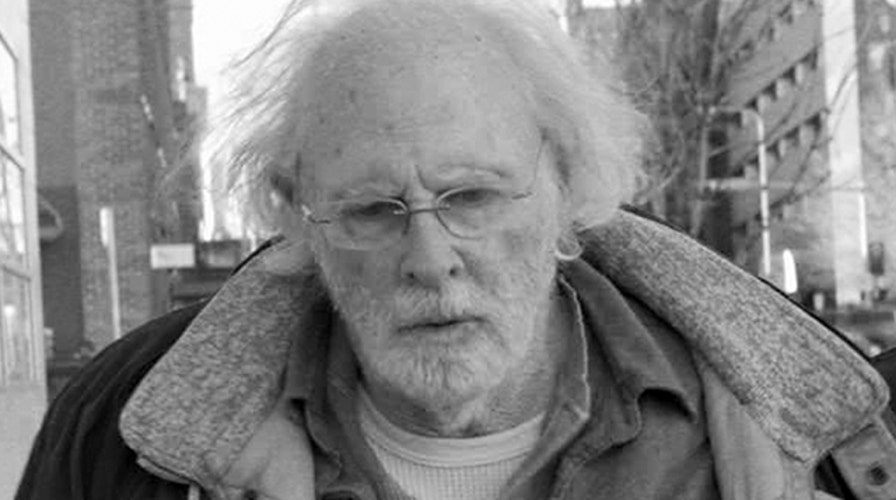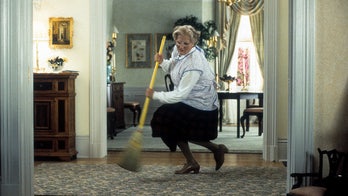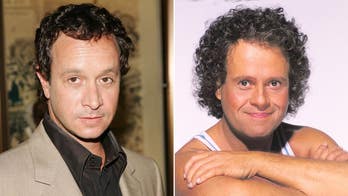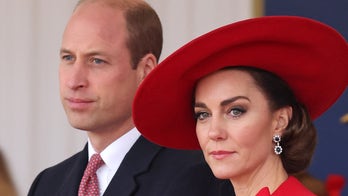Bruce Dern gives performance of the year in 'Nebraska'
Ashley Dvorkin and Justin Craig on Bruce Dern's career-topping performance in Alexander Payne's 'Nebraska.' Also: Hurricane Sandy doc '12-12-12' and 'The Best Man Holiday'
Virtuoso character actor Bruce Dern gives the performance of the year – and his career – in Oscar-winner Alexander Payne’s quirky and sublime father-son road trip drama “Nebraska.” A redemption story at heart, “Nebraska” is a tender, whimsical and often uproariously funny love letter to heartland America -- warts and all.
Woody Grant (Dern) and his son David (Will Forte) are losers. Throughout his life, Woody has made bad decision after bad decision, resulting in alcoholism and familial neglect. Having never taken any responsibility for his actions, Woody grew to become an old, laconic and lonely miser putting tremendous burden on his acerbic wife Kate (June Squibb). When he receives junk mail claiming he won a million dollars from Publishers Clearing House, a confused but seemingly-entitled Woody is determined to walk to the Publishers Clearing House office in Nebraska to personally claim his prize. Like his father, David has taken little responsibility for his life, falling behind in his troubled relationships and settling to be a TV salesman at an electronics store while his brother Ross (Bob Odenkirk) surpasses him becoming the local TV news anchor.
When obstinate Woody continues to sneak off to Nebraska after being stopped many times, estranged David decides to man-up and drive his father regardless of the outcome. Along the way, Woody and David stop at Woody’s childhood hometown where word spreads that he has become a millionaire, prompting old acquaintances to come forth to see the new celebrity and worse -- expect a handout. This sets in motion a series of events that cause Woody and David to face their own lies, regrets and shortcomings.
“Nebraska” is Payne first directorial effort without also writing the screenplay. That honor belongs to Bob Nelson, whose witty, poignant script whimsically captures the greed, lack of responsibility and sense of entitlement that has ruined many a relationship. Payne and Nelson’s “Nebraska” gratifyingly characterizes the sweet and unwavering bond between fathers and sons, no matter how distant. Woody and David are two odd, displaced people but they ultimately come to protect one another, and with the help of Kate and Ross, find their way out of the woods and on the road again.
Exquisite black and white photography by Phedon Papamichael accentuates the timeless beauty of the Midwest while also capturing the deep economic loss in some smaller towns where work has dried up for an aging population. Shots featuring natural locations suffering from economic despair pack a few extra visceral punches.
Dern is a singular, unique actor. His performances to this day still embody the grit and realism of late 1960s and ‘70s counterculture film. One of the finest character actors to ever grace the screen, Dern is finally getting the acclaim his career deserves. He won Best Actor this year at the Cannes Film Festival and he deserves the Oscar this year, too. As “Nebraska” ends, it’s difficult to not cheer for Woody the sad, Don Quixote-like hero and for Dern, who has given the performance of a lifetime.
Forte (“Saturday Night Live”) delivers a remarkably subtle and serious performance. A complete 180-degree turn from his “MacGruber” sketches, Forte deftly handles Payne and Nelson’s droll humor by balancing David’s embarrassment and unease with renewed pride. Forte is one of the few comedians to completely and naturally turn to drama without carrying his comedic baggage with him. Drama suits Forte really well, as evident with this fine performance.
Squibb brings down the house with her uproarious candid delivery as Kate, Woody’s no-nonsense wife. Squibb fires on all cylinders, dishing hilarious line after hilarious line as the voice of reason. She is phenomenal portraying a devoted woman who loves her husband but doesn’t shy away from telling him, or anyone else, off at any given moment. Squibb, too, should take home an Oscar for her coarse and hilarious performance.
As expected in a Payne film, the supporting cast adds delicious seasoning. Stacy Keach is Woody’s long-ago partner back to bully him into forking over money. Remember Devin Ratray as Buzz in “Home Alone?” He’s here and brings the laughs as David’s cocky, greedy and mischievous cousin. Rance Howard (Ron Howard’s father) is also delightful as Woody’s brother. Payne even uses local citizens throughout, fleshing out the film with colorful authenticity.
Finally, Mark Orton’s score captures the soul, quirkiness and solemnity of the open road and the stark impact the economy has had on small town America. Featuring pieces from his Tin Hat Trio group, Orton’s music perfectly reflects Woody’s and David’s noble journey to reclaiming their identity.
“Nebraska” is a beautiful, timeless American film whose story, characters and performances should be treasured. This is one of the year’s best films and once again, Alexander Payne has given us a tender, poetic masterpiece.
Paramount Pictures. MPAA Rating: R. Running time: 1 hour and 50 minutes.







